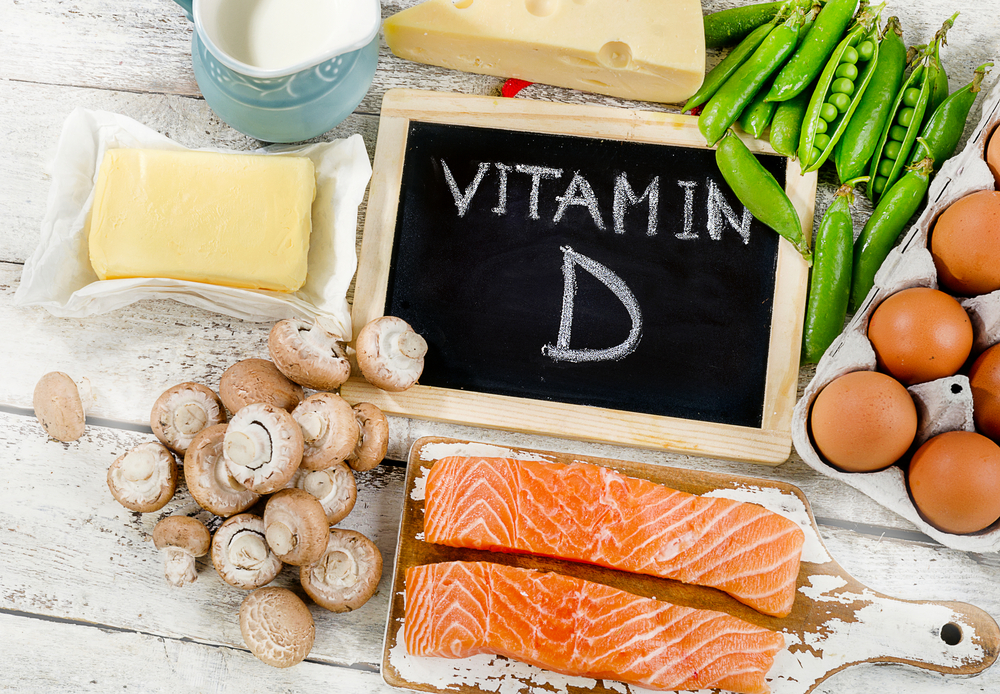
Vitamin D
Vitamin D is completely different from most other vitamins. It is a steroid hormone produced from cholesterol when your skin is exposed to the sun. For this reason, vitamin D is often referred to as “the sunshine vitamin.”
However, sun exposure rarely provides adequate vitamin D, making it necessary to obtain it from supplements or your diet. Yet, only a handful of foods contain significant amounts of this crucial vitamin, and deficiency is prevalent.
Vitamin D ingested orally can take weeks, even months, to have an impact on your health – and much of the dose is lost when it is converted in the gut. However, intramuscular vitamin d injections have a much more immediate impact – some patients report feeling the effects right away. And because the vitamins are administered directly into the muscle, bypassing the gut, a much higher percentage of the vitamins can be utilized by the body.
Vitamin D benefits:
- A responsive immune system and reduces inflammation,
- It helps minimize and reduce wrinkles and makes skin soft and smooth,
- It helps reduce stress and tension, improving mental health, deficiency can lead to seasonal depression/seasonal affective disorder (SAD) in areas or seasons with low exposure to sunlight,
- It helps to maintain cognitive health, and supports brain function,
- It helps to manage diabetes and supports weight loss,
- Strong bones
- A healthy heart
- Lowers the risk of colon, breast, and prostate cancer.
Assessment
It is required before your first treatment
Treatment Time
15 minutes
Discomfort
minimal to none
Downtime
minimal to none
Treatments No.
several
Results Duration
continues treatment
Vitamin D FAQ
Although seemingly ubiquitous, vitamin D is a fat-soluble vitamin that is found naturally in very few foods. Naturally, vitamin D is found in foods like fatty fish, including tuna, mackerel, and salmon, beef liver, cheese, and egg yolks, as well as foods fortified with vitamin D, including some dairy products, orange juice, soy milk, and cereals. That’s about it! Vitamin D can also be obtained from sun exposure.
Approx. 42% of the population suffers from insufficient levels of vitamin D; it might seem like virtually everyone is at risk for deficiency. This is true because vitamin D is obtained from relatively few sources, but certain groups are more at risk of others. People who are at an increased risk for vitamin D deficiency include:
- People Who Do Not Ingest Enough Vitamin D Over Time
The most common sources of vitamin D are from animal-based products, including fish, fish oils, fortified milk, egg yolks, and beef liver. Therefore, patients who adhere to a strict vegan diet or limit consumption of meat products are at an increased risk of vitamin D deficiency if they do not receive vitamin D from another source.
- People With Limited Exposure to Sunlight
Whether you prefer to stay indoors and play video games, live in northern latitudes with limited sunlight hours, or wear long robes or head coverings for religious reasons, limited exposure to sunlight is a major cause of vitamin D deficiency. The amount of sun exposure required to achieve sufficient levels is not high – most people benefit from just 15 to 20 minutes a day of sun exposure – but this may be difficult if you have a medical issue or other circumstance that makes spending time in the sun challenging.
- People With Darker Skin Tones
The more melanin, or pigment, that your skin has, the higher your risk of vitamin D deficiency. Melanin diminishes the ability of the skin to produce vitamin D in response to exposure to the sun, so older adults with darker skin are especially at risk of vitamin D deficiency.
- People With Kidney Issues
Our kidneys play a vital role in helping our bodies convert vitamin D to its active form. Therefore, people with kidney illnesses or lower functioning kidneys are at increased risk of vitamin D deficiency.
- People with Certain Digestive Issues
In order to use vitamin D effectively, our bodies must be able to absorb it from the food that we eat. People with conditions like Crohn’s disease, celiac disease, and cystic fibrosis are at an increased risk of vitamin D deficiency because their intestines may not fully absorb vitamin D from the food they eat.
- People who are overweight or obese
Surprisingly, our weight can impact our bodies’ levels of vitamin D. Vitamin D is a fat-soluble vitamin that is extracted from the blood by fat cells, which alter its release into our circulatory systems. People with a body mass index (BMI) of 30 or greater are often found to have low levels of vitamin D.
Vitamin D is an extremely important vitamin for many bodily functions, but many people don’t realize that they are deficient because the signs and symptoms are often subtle. Common signs of vitamin D deficiency include https://www.healthline.com/nutrition/vitamin-d-deficiency-symptoms:
- Fatigue or Exhaustion:
Low blood levels of vitamin D have been linked to severe fatigue in many case studies, but researchers have also found that vitamin D levels do not have to be extremely low in order to have a significant impact on energy levels https://pubmed.ncbi.nlm.nih.gov/23511484/.
- Depression:
Low levels of vitamin D have been linked to depression in all ages, but older adults are especially at risk.
- Loss of Bone Density:
Vitamin D helps the body absorb calcium and metabolize bone, and without it, low bone mineral density can result. Patients often supplement with calcium when they find out they have low bone density, yet many are also deficient in vitamin D. Older adults, especially women who have experienced menopause, are at risk for low bone mineral density.
- Muscle Pain:
Not many people think of muscle pain as a symptom of vitamin D deficiency, but one study found that 71 per cent of people with chronic muscle pain were found to be deficient in vitamin D https://pubmed.ncbi.nlm.nih.gov/24730754/. Taking vitamin D supplements can help to reduce muscle pain in children and adults found to be deficient.
- Frequent Illness:
If it feels like you’re one of those people who is always getting sick, you might have low levels of vitamin D. Vitamin D plays a vital role in keeping the immune system strong, so without it, you’re much more likely to get sick.
- Bone and Back Pain:
People with vitamin D deficiencies were more likely to have back pain, including severe back, than those who did not, according to one study https://pubmed.ncbi.nlm.nih.gov/23758943/. Another study found that people with vitamin D deficiencies were almost twice as likely to have bone pain in their joints, ribs, or legs than those who had normal levels of vitamin D https://pubmed.ncbi.nlm.nih.gov/21199469/.
- Slower Healing:
If you experience slow wound healing times or struggle to recover from injury, you may have low levels of vitamin D, which is critical in controlling inflammation and fighting infection. People with significant vitamin D deficiency showed higher inflammatory markers than normal levels, which can jeopardize healing https://pubmed.ncbi.nlm.nih.gov/25331710/.
- Hair Loss:
Severe hair loss, such as that caused by alopecia areata, is linked to low vitamin D levels. People with low levels of vitamin D may be at increased risk of developing alopecia areata, which is an autoimmune disorder or suffering from other forms of severe hair loss.







